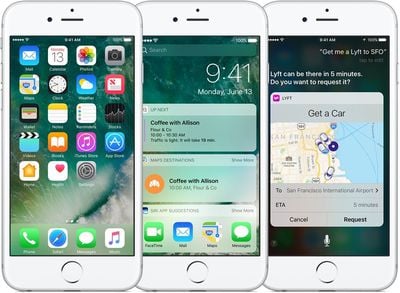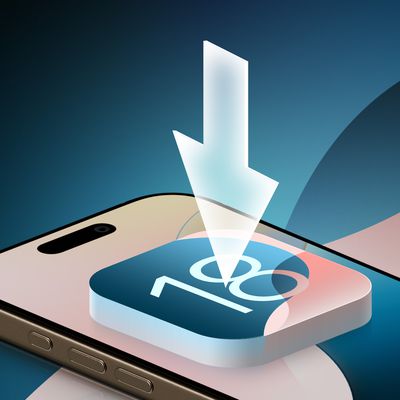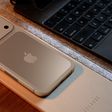iOS 10 Beta Features Unencrypted Kernel Making it Easier to Discover Vulnerabilities
Apple's iOS 10 preview, seeded to developers last week, does not feature an encrypted kernel and thus gives users access to the inner workings of the operating system and potential security flaws, reports MIT Technology Review. It is not known if this was an unintentional mistake or done deliberately to encourage more bug reports.

Security experts say the famously secretive company may have adopted a bold new strategy intended to encourage more people to report bugs in its software--or perhaps made an embarrassing mistake.
In past versions of iOS, Apple has encrypted the kernel, aka the core of the operating system, which dictates how software uses the iPhone's hardware and keeps it secure. According to experts who spoke to the MIT Technology Review, leaving iOS unencrypted doesn't leave the security of iOS 10 compromised, but it makes it easier to find flaws in the operating system. Security flaws in iOS can be used to create jailbreaks or create malware.
The goodies exposed publicly for the first time include a security measure designed to protect the kernel from being modified, says security researcher Mathew Solnik. "Now that it is public, people will be able to study it [and] potentially find ways around it," he says.
Apple has declined to comment on whether the lack of encryption was intentional or a mistake, but security expert Jonathan Zdziarski believes it was done by choice because it's not a mistake Apple is likely to have made. "This would have been an incredibly glaring oversight, like forgetting to put doors on an elevator," he told MIT Technology Review.
He further suggests Apple may have chosen this route to prevent the hoarding of vulnerabilities like the one that was ultimately used by the FBI to break into the iPhone 5c of San Bernardino shooter Syed Farook and to have more people looking at the code to discover latent security flaws.
Popular Stories
An iPhone 17 announcement is a dead cert for September 2025 – Apple has already sent out invites for an "Awe dropping" event on Tuesday, September 9 at the Apple Park campus in Cupertino, California. The timing follows Apple's trend of introducing new iPhone models annually in the fall.
At the event, Apple is expected to unveil its new-generation iPhone 17, an all-new ultra-thin iPhone 17...
Apple is expected to unveil the iPhone 17 series on Tuesday, September 9, and last-minute rumors about the devices continue to surface.
The latest info comes from a leaker known as Majin Bu, who has shared alleged images of Apple's Clear Case for the iPhone 17 Pro and Pro Max, or at least replicas.
Image Credit: @MajinBuOfficial
The images show three alleged changes compared to Apple's iP...
Apple and Samsung have reportedly issued cease-and-desist notices to Xiaomi in India for an ad campaign that directly compares the rivals' devices to Xiaomi's products. The two companies have threatened the Chinese vendor with legal action, calling the ads "disparaging."
Ads have appeared in local print media and on social media that take pot shots at the competitors' premium offerings. One...
Apple will launch its new iPhone 17 series this month, and the iPhone 17 Pro models are expected to get a new design for the rear casing and the camera area. But more significant changes to the lineup are not expected until next year, when the iPhone 18 models arrive.
If you're thinking of trading in your iPhone for this year's latest, consider the following features rumored to be coming to...
Apple is preparing to release iOS 18.7 for compatible iPhone models, according to evidence of the update in the MacRumors visitor logs.
We expect iOS 18.7 to be released in September, alongside iOS 26. The update will likely include fixes for security vulnerabilities, but little else.
iOS 18.7 will be one of the final updates ever released for the iPhone XS, iPhone XS Max, and iPhone XR,...



















